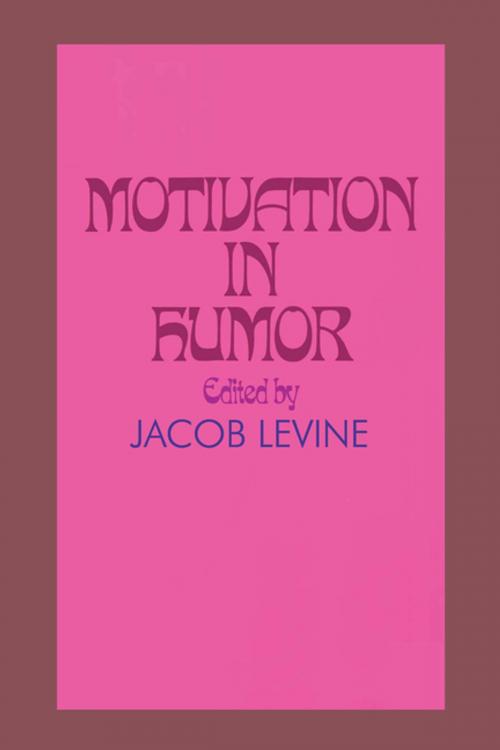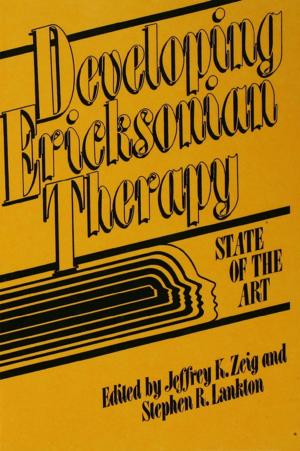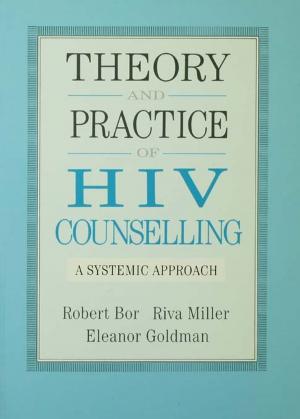| Author: | ISBN: | 9781351504454 | |
| Publisher: | Taylor and Francis | Publication: | July 5, 2017 |
| Imprint: | Routledge | Language: | English |
| Author: | |
| ISBN: | 9781351504454 |
| Publisher: | Taylor and Francis |
| Publication: | July 5, 2017 |
| Imprint: | Routledge |
| Language: | English |
This is not a funny book--but it is the first to bring together contemporary experimental studies on humor. The fourteen scholarly papers included here mark an important breakthrough in this vital, complex, and largely unexplored subject. Motivation in Humor shows that humor is researchable by scientific methods and indicates the difficulties involved in such work. Here are samples of the important parameters of behavior and attempts at defining the factors that influence the humor response as well as the effects of this response upon subsequent emotional states. In his expert introductory chapter, Jacob Levine traces the progress of humor research and analyzes the papers that follow. To summarize a few of his findings: Three basic research models--three conflicting models of the motivation of man--have been used to explain the motivational sources of humor: one is positive, one negative, and one mixed. These are: (1) cognitive-perceptual theory, which stresses the successful and surprising resolution of an incongruity, paradox, or double entendre; (2) behavior theory, with its emphasis on stimulus-response learning and the reduction of base drives; and (3) psychoanalytic theory, which emphasizes the gratification of the primary unconscious drives of sex and aggression in conjunction with the pleasures of mental activity that sometimes involve regression to infantile modes of thinking. The development of humor reflects an interaction between innate psycho physiological processes and learned response patterns. Evidence indicates that humor is influenced by such diverse situations and individual dispositions as interpersonal anxiety, prior emotional set, and social setting. Studies also point to the cathartic effects of humor appreciation, particularly with aggressive or tendentious humor. The considerable research prompted by these ideas has begun to throw some light on the positive motives, a reflection of the new approaches to motivation theory. Teachers will fi
This is not a funny book--but it is the first to bring together contemporary experimental studies on humor. The fourteen scholarly papers included here mark an important breakthrough in this vital, complex, and largely unexplored subject. Motivation in Humor shows that humor is researchable by scientific methods and indicates the difficulties involved in such work. Here are samples of the important parameters of behavior and attempts at defining the factors that influence the humor response as well as the effects of this response upon subsequent emotional states. In his expert introductory chapter, Jacob Levine traces the progress of humor research and analyzes the papers that follow. To summarize a few of his findings: Three basic research models--three conflicting models of the motivation of man--have been used to explain the motivational sources of humor: one is positive, one negative, and one mixed. These are: (1) cognitive-perceptual theory, which stresses the successful and surprising resolution of an incongruity, paradox, or double entendre; (2) behavior theory, with its emphasis on stimulus-response learning and the reduction of base drives; and (3) psychoanalytic theory, which emphasizes the gratification of the primary unconscious drives of sex and aggression in conjunction with the pleasures of mental activity that sometimes involve regression to infantile modes of thinking. The development of humor reflects an interaction between innate psycho physiological processes and learned response patterns. Evidence indicates that humor is influenced by such diverse situations and individual dispositions as interpersonal anxiety, prior emotional set, and social setting. Studies also point to the cathartic effects of humor appreciation, particularly with aggressive or tendentious humor. The considerable research prompted by these ideas has begun to throw some light on the positive motives, a reflection of the new approaches to motivation theory. Teachers will fi















